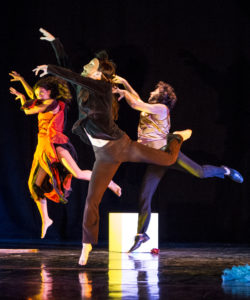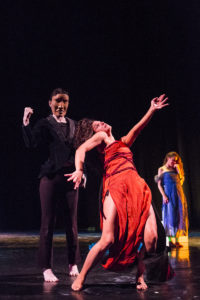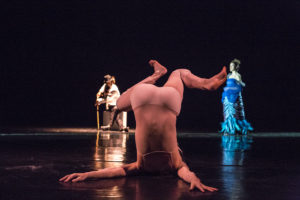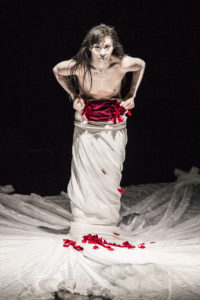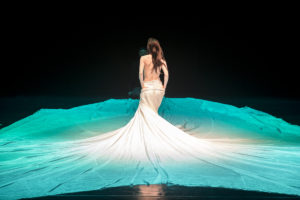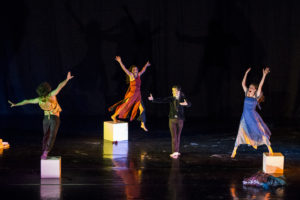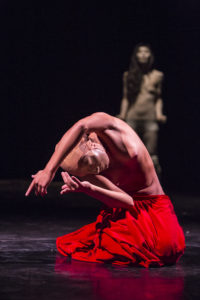Compagnia Dulcamara Teatro
Ombra (2015)
MISHIMA THE ANGEL OF NOWHERE
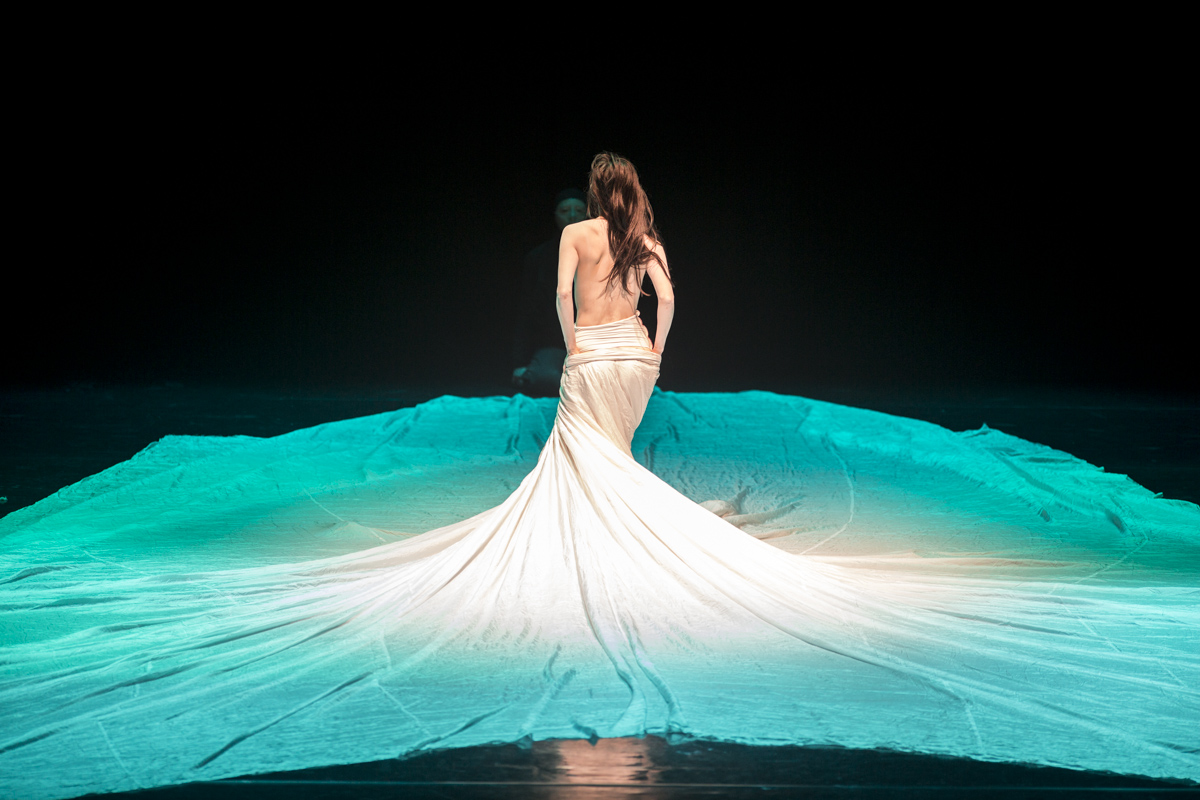
concept and subject Valentina Cidda, Sayoko Onishi
directed by Valentina Cidda
choreography Sayoko Onishi
collaboration to the direction Valentino Infuso
co-production Associazione Sosta Palmizi, Teatro Comunale di Ferrara, Dulcamarateatro
with the support of the Municipality of Lucignano (Ar)
thank you Alessandro Cidda, ACC & Partners, Silvana Lino
masks Valentino Infuso
creative tailoring Annalisa Gianantonio
lights Giovanni Monzitta
interpreters Sayoko Onishi, Erica Archinucci, Caterina Cidda, Valentino Infuso
duration 65 minutes
we also thank James Venit, Pierre Gramegna and Silvie Ferrari, Giuseppe De Luca, Elisabetta Ramistella, Rosamaria Tomasino, Enza Morello, Fulvia Chiovaro, Debora Verso, Patrizio Pampaloni, Cecilia Ventriglia, Rossella Capizzi, Maria Concetta Taormina, Rosalia Marramaldo, Ina Busà, Elisabetta Conti, Jessica Vlah, Fulvia Papiro, Stefania, Vera Zappalà, Maria Crivello, Serena Bonfiglio, Enza Indelicato, Debora Orlando, Francesca Romeo, Maria Rita Cirrincione, Roberta Sabatini, Elio Andreozzi, Antonella Cuttitta, Leda Bursi
a special thanks to Giovanna Strivieri
Theatre and dance performance inspired by the life and works of Yukio Mishima, a character so contradictory and dense as to be able to embody in a single life, thanks to the many characters in his stories and books, an entire humanity, an entire army of different souls and in constant dialogue within a single being: his own. The interpreter Sayoko Onishi will be, on stage, the vital breath of Mishima, the angel of nothingness, lost in the world and in existence, brought back to the end of each painting, always, inexorably, to himself.
Director’s notes
The spirit of Mishima was the starting point in this work, an extraordinary travelling consciousness so multiple and desperately human in its tension towards the divine. Then the creative attention was centered, also in its performative aspect, on something that goes beyond any specific cultural identity; This does not mean that I ignore it, but it means that it can cross it and transcend it in order to find a way of being in the world, a way of existing – albeit for the time span of a performance – in the grace of an authentic “encounter”… The encounter to which one tends, in the creation of this work, is an existential encounter with life, with oneself, with the inner being that reveals, confesses, masks itself and becomes an “example of humanity” lived with and through the SHADE that each of us carries within ourselves: the dark half of the great moon of Being.
Valentina Cidda
Valentina Cidda
Why Yukio Mishima
Tatsumi Hijikata, considered together with Kazu Ono, the founding father of Butoh, went on stage in 1959 with the controversial performance Kinjiki (Forbidden Colours), considered the first real Butoh dance show, taken from the homonymous book by the writer Yukio Mishima. The life of Mishima, which is a work of art in itself, and Butoh were born and evolved mysteriously together, on two parallel and controversial tracks. They have become denounced, revolution, shocking and harsh language, a deep search for something indefinable that, the ANIMA, would perhaps call “homesickness”. Our age is a time of passage, crisis and great cultural transformation on a global scale, and precisely for this reason now, creative attention is centred in this show on something that goes beyond any specific cultural identity and arrogance; this does not mean that I ignore it, but it means that I can cross it and transcend it to find – in a world where everything is confused and mixed, everything is overturned and emptied – a way of being in the world, a way of finally existing in the grace of an authentic “encounter”.
The encounter to which one tends, in the creation of this work, is an existential encounter with life, with oneself, with the inner being that reveals, confesses, masks and unmasks itself and becomes an “example of humanity”.
The Humanity of Mishima is therefore, the beating heart of this show. His nature as an “extremely human” man, lost and heroic, mad and lucid, desperately thirsty for love and unable to love. Mishima as an “example of humanity”. Mishima and his travelling consciousness, eternally suspended between life and death, between heroism and martyrdom, between so many realities, contradictions, facts, dreams, characters, events, desires, disillusions, acts of extreme strength and deep fragility, between the dream of the Divine Kingdom, symbolized by the Emperor, and the great nothingness of which he became, with the last epic gesture of his suicide, the supreme ambassador: the angel of nothingness.
From the presentation of the show under study by Eugenia Casini Ropa
On the scene the shadow or perhaps the soul of Mishima – to whom Sayoko Onishi lends her naked and bleached Ephebic body according to the tradition of butoh – moves with restlessness, passion, extraneousness or anguish with the environment and the figures around her. Though without the intention of building a biography, the different scenes symbolically allude to conflicting moments or moods seen as determining in Mishima’s life: the difficult adaptation to society experienced as the taming of a free animal, the discovery of beauty and sensuality overshadowed in the figure of St. Sebastian, the transformation in the warrior body and spirit of the samurai with martial art, the assumption of the public mask to hide the inner turmoil, the perturbing confrontation with the characters he created who drag him into a crazy waltz, the obsession with death omens, until the final liberating suicide, which although apparently interpreted in the noblest version of heroic immolation to his ideals, does not hide, in the vibrant transparency of the image, the surrender to an inner struggle no longer sustainable.
concept and subject Valentina Cidda, Sayoko Onishi
directed by Valentina Cidda
choreography Sayoko Onishi
collaboration to the direction Valentino Infuso
co-production Associazione Sosta Palmizi, Teatro Comunale di Ferrara, Dulcamarateatro
with the support of the Municipality of Lucignano (Ar)
thank you Alessandro Cidda, ACC & Partners, Silvana Lino
Valentino Infused Masks
creative tailoring Annalisa Gianantonio
lights Giovanni Monzitta
interpreters Sayoko Onishi, Erica Archinucci, Caterina Cidda, Valentino Infuso
duration 65 minutes
we also thank James Venit, Pierre Gramegna and Silvie Ferrari, Giuseppe De Luca, Elisabetta Ramistella, Rosamaria Tomasino, Enza Morello, Fulvia Chiovaro, Debora Verso, Patrizio Pampaloni, Cecilia Ventriglia, Rossella Capizzi, Maria Concetta Taormina, Rosalia Marramaldo, Ina Busà, Elisabetta Conti, Jessica Vlah, Fulvia Papiro, Stefania, Vera Zappalà, Maria Crivello, Serena Bonfiglio, Enza Indelicato, Debora Orlando, Francesca Romeo, Maria Rita Cirrincione, Roberta Sabatini, Elio Andreozzi, Antonella Cuttitta, Leda Bursi
a special thanks to Giovanna Strivieri
